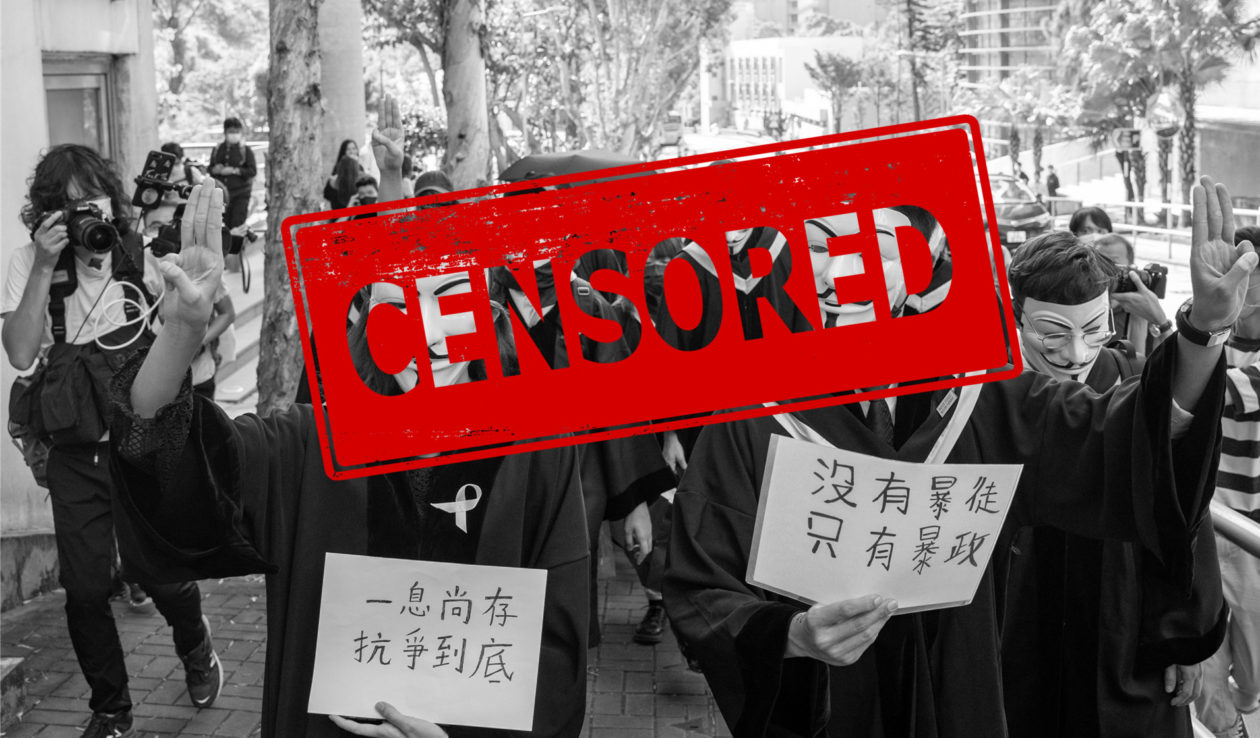Earlier this September, Kin Ko, the founder of LikeCoin, found that the 4-year-old project he created had taken an unexpected turn — it was being used to preserve Hong Kong’ collective memory amid an ongoing government crackdown on news and free speech.
An anonymous Hong Kong resident has registered more than 6,000 clips by the city’s public broadcaster Radio Television Hong Kong onto a blockchain, using LikeCoin’s decentralized publishing infrastructure.
With blockchain’s tamper-proof nature, any changes made to the clips in the future would be logged on its digital fingerprint.
“The demand to put content on blockchain is universal, but what’s special about Hong Kong is that it has all of a sudden turned into an authoritarian city from somewhere very democratic, and people started to feel the need for this technology,” Ko said.
Ongoing crackdown
In little more than a year, China’s crackdown on dissent has transformed the city. A new National Security Law criminalizes secession, subversion, collusion with foreign forces and terrorist activities. Individuals found in violation could face as long as life in prison, while businesses — including news sites — could be forced to shut down.
Under this backdrop, tech savvy citizens have turned to blockchain to back up content that has been disappearing from the public eye due to government crackdown.
In May, Hong Kong’s public broadcaster RTHK said it would begin erasing content that is over a year old from its website and social media accounts. Fearing that coverage of the 2019 Hong Kong protests and the ongoing political crackdown would be lost, people began backing up RTHK shows on YouTube. Users on the LIHKG, the city’s Reddit-like internet forum, also shared detailed steps of how one could help back up the RTHK episodes onto LBRY — a blockchain content-sharing platform.
Responding to calls on LIHKG, Chan, who only gave her last name for fear of retribution, quietly downloaded and backed up the broadcaster’s flagship current affairs program Hong Kong Connection, including an investigation into the Yuen Long train station attack in July 2019. “If these stories are gone and forgotten, history could be easily rewritten in the future,” she told Forkast.News.
In June, the Hong Kong government forced Apple Daily, one of the city’s most popular pro-democracy newspapers, to close as part of a national security probe. As the government shut off Apple Daily’s website and took down all previous coverage, an anonymous group, dAppleDaily, uploaded archived Apple Daily articles onto Arweave, a decentralized file storage platform that aims to protect internet content from censorship.
The group was able to back up about 5,600 pieces of news, only a small portion of Apple Daily’s content. “The truth is important. Human history is important and needs to be written by the people,” a 21-year-old developer, who gave their surname as Ho, told Forkast.News in an earlier interview.
Laying grounds
Ko did not expect that his platform would be embraced by digital activists.
When Ko started LikeCoin in 2017, his goal was to create an open-source blockchain technology that decentralizes content and publishing. That includes a first step that creates a protocol for content attribution and monetization, a second step that functions as a decentralized registry of metadata, which the team officially launched two months ago, and a third stage that utilizes LikeCoin as a governance token.
For now, LikeCoin functions as a repository of immutable metadata. When a piece is published, metadata such as author, timestamp and publication location will be generated and cataloged on the LikeCoin chain using a content registry protocol called International Standard Content Number (ISCN). The actual content, linked with ISCN, will be stored on the decentralized storage platform InterPlanetary File System (IPFS). Any changes in the future will be flagged.
“When LikeCoin started, solutions to data storage were already created. We wanted to create an infrastructure on top of that, something different but works well with the existing ecosystem,” Ko explained.
Ko uses the case of RTHK as an example. While having individuals download copies of RTHK episodes, store them on hard drives, upload copies onto YouTube, or back them up on blockchains would preserve vanishing memories, Ko said this method also has some shortcomings.
“If I want to help back up some of the contents, how do I know which ones have been backed up already by someone else and which ones have not?” Ko said. “In the future, when I want to watch the clips again, where can I find them? How do I know if the content is authentic and hasn’t been altered during the years?”
Ko explained, with blockchain, the community could find consensus and a mechanism to coordinate. And using LikeCoin, which stores the content on IPFS and creates a unique fingerprint for each piece of content, means that backups would be easier to be found when someone needs them. “Without metadata, data would be difficult to organize or be discovered,” Ko said.
As of now, local independent news outlets such as the Stand News, InMedia and Citizen News use LikeCoin to generate extra rewards for content creators. A photography application built on top of LikeCoin’s infrastructure would open doors for users to identify the original source of photos, which — if used to its full potential — could help slow the spread of disinformation.
In other parts of the world, similar technology is being used on journalism and data services. The Associated Press recently partnered with Chainlink to deliver its data on-chain. The collaboration will enable AP to store and supply economic, sports and financial results datasets to applications running on blockchains, making news data tamper-proof.
“Human history and culture are worth preserving,” Ko said. “What I am against is not the government, but the factors that will make history and culture disappear, that includes natural disasters, man-made disasters, and so on.”




